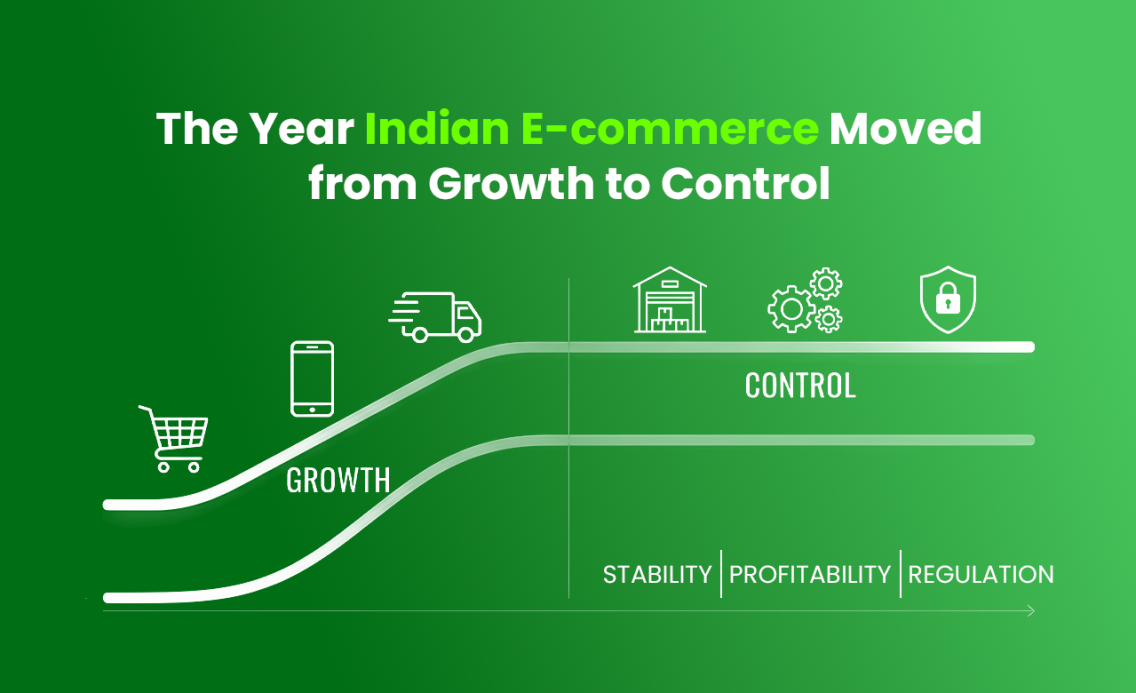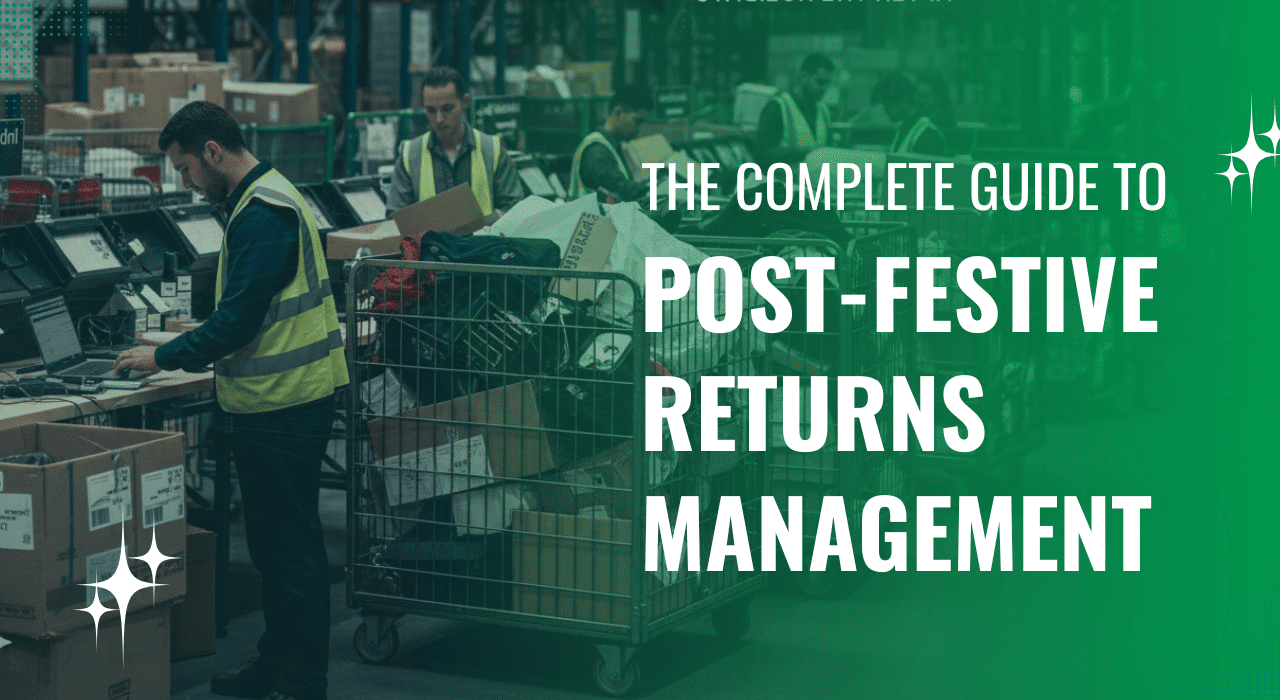Table Of Contents hide
3. The Impact of TCS on eCommerce under GST
3.3. Preventing fraudulent activities
4. Documents required to register for TCS
The Tax Collected at Source (TCS) came into effect on October 1, 2020—expanding India’s real-time tax tracking for eCommerce transactions. Provisioned under Section 52 of the CGST Act, it impacts both sellers and eCommerce operators across industries. This blog captures everything you need to know about TCS and its application in 2025.
What is TCS?
The TCS under GST refers to the tax collected by an eCommerce operator from the considerations it receives from a goods or services supplier who sells through the operator’s online platform. The eCommerce operator will collect an amount as a percentage of the net taxable supplies at the rate of 1% w.e.f. 2022 onwards. The components of a TCS are the CGST (0.5%) and SGST (0.5%).
Only those operators who own and manage eCommerce platforms are liable to collect TCS. in other words, it is cut by operators who receive the consideration amount from customers on behalf of a seller. TCS is applicable even if the seller delivered the goods and services directly or received the payment via an eCom operator.
While the TCS has increased administrative costs for online marketplaces like Flipkart and Amazon, levying it increases compliance. Even if their turnover is less than the threshold turnover limit for GST registration, dealers who sell their goods or services online still need to register under GST to claim the tax deducted by eCommerce operators.

How is TCS calculated?
TCS is calculated on the gross payment amount. eCommerce operators or E-marketplaces will deduct it at 1% at the time of the sales amount for the goods or services getting credited.
For example, a product selling for INR 5,000/- on Amazon invites a tax of 1% which is deducted by Amazon. INR 50 will be deposited to the government. From the 1st of January 2022, all eCommerce aggregators in the restaurant and food delivery businesses will be liable to pay tax for the services they provide. Unregistered suppliers and individuals operating hotels and taxi/cab services are exempted from the TCS provisions.
GST on TCS applies to the net value of the goods sold through the eCommerce operator.TCS will be deducted in the same month as the supply of goods or services. The same is credited within 10 days from the month end to the government by submitting form GSTR-8. The IGST will be paid to the central government, while the SGST is made to the respective State governments.

The Impact of TCS on eCommerce under GST in 2025
In 2025, the core framework for GST-based TCS on eCommerce remains unchanged; however, businesses should be aware of parallel Income Tax TCS amendments effective April 1, 2025, which do not directly affect GST compliance but underscore the government’s continued focus on streamlined collection.
- Stable GST TCS Regime
No new GST notifications have altered the 1% TCS levy for intra- or inter-state eCommerce transactions in 2025. Platforms continue to deduct 0.5% CGST + 0.5% SGST (or 1% IGST) on net supplies and remit via GSTR-8 by the 10th of each month. - Income Tax TCS Reforms
Budget 2025 introduced enhanced threshold limits and exemptions under the Income Tax Act (e.g., Section 206C) to ease remittance and goods TCS. While these changes address non-GST remittances, they do not impact eCommerce TCS accounting under GST; however, e-tailers offering cross-border services (LRS flows) should coordinate GST and Income Tax TCS processes. - Tech and Compliance Integration
With GST TCS steady, the emphasis shifts to integrated tax engines that manage both GST TCS and Income Tax TCS. Leading platforms are embedding multi-act compliance modules to classify transactions correctly and apply parallel TCS rules where applicable. - Marketplace Dynamics
As GST TCS continues to enforce registration and timely deposit, smaller niche platforms are leveraging plug‑n‑play GST-TCS toolkits to remain compliant without large IT investments—further democratizing eCommerce in tier‑2/3 markets.
Documents required to register for TCS
It is mandatory for all eCommerce operators that are liable to collect TCS and sellers selling through online portals to register under GST. The only exemption from registration for sellers is those whose aggregate turnover falls below INR 20 Lakhs. The eCommerce operator will need to pay the GST. The following documents will be asked for
- Self-attested PAN card copy.
- Photograph (JPEG),Email Address and Mobile Number of authorized signatory
- GSTIN and IEC if available
- Proof of office address if self-owned.
- Copy of property tax receipt. If the office space is rented, then a copy of the NOC/rental agreement will suffice.
- Authorization letter in case it’s an LLP or partnership
FAQS
- Who is an e-commerce operator as per GST?
An electronic commerce operator is a person or business entity who owns or operates an electronic facility for the sale and purchase of goods.
- How do I claim TCS collected by eCommerce?
The amount of TCS paid by the eCommerce operator to the government can be viewed in the GSTR-2 of the actual registered supplier on whose account the collection has been made. The statement recorded on the supplier’s cash ledger will reflect the tax collected. Suppliers can accordingly claim the credit via GSTR 2A.
- Will an e-commerce operator be liable to pay tax in respect of the supply of goods or services made through it?
Yes, an eCommerce operator is liable to pay tax with respect to the sale of goods and/or services through it if the supplier is liable to pay tax in relation to supplying the said services. This is in accordance with Sec 9(5) of the CGST Act, 2017. A similar provision for inter-state supply can be looked up under Sec 5(5) of the IGST Act, 2017.
- Is a seller supplying goods or services through e-commerce operators entitled to threshold exemption?
No, if the supply is made via an eCommerce operator, the threshold exemption is unavailable. However, the supplier is exempted if the operator needs to pay the tax on behalf of the supplier under a Section 9(5) notice of the CGST Act 2017.

.png)
![[2025 Update]: What Is TCS (Tax Collected At Source)? Everything You Need To Know](https://cdn.prod.website-files.com/63a40b5d0bd7064cf2860235/63b56b5268e8e89aceaf3989_pexels-ketut-subiyanto-4308046-1024x630.jpg)











